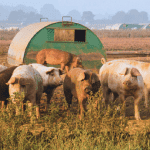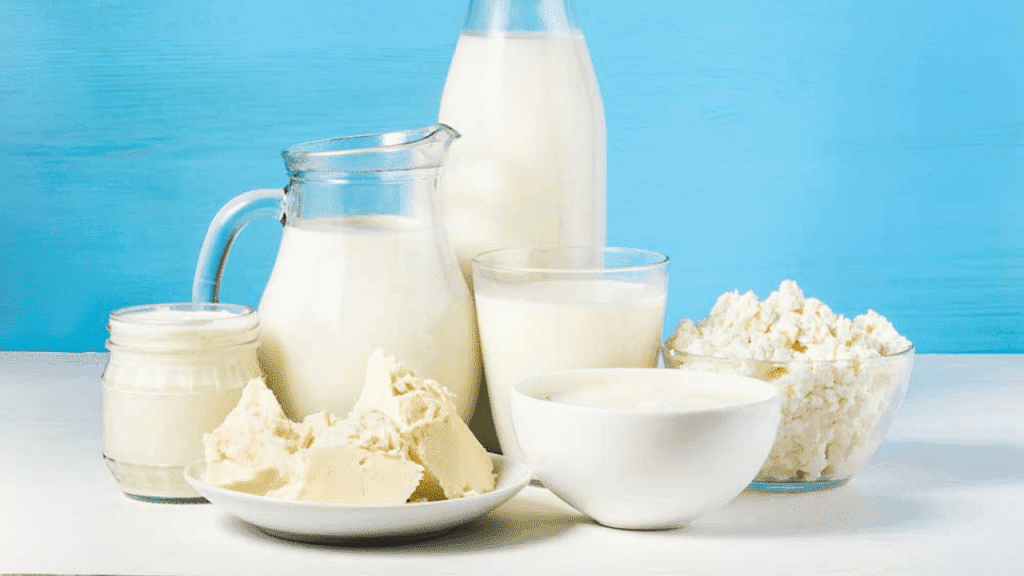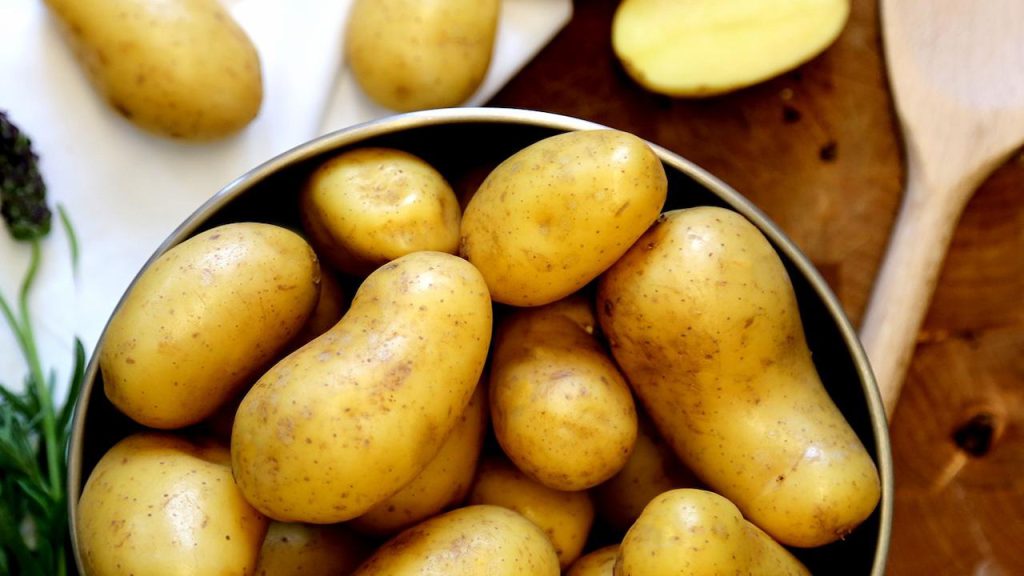Importance of whole grains
Healthy dietary recommendations worldwide advise including starchy carbohydrates into your food choices, particularly higher fibre whole grain varieties. Some people think starchy foods are fattening, but gram for gram they contain less than half the calories of fat. Whole grains are a good source of fibre and provide our body with essential vitamins and minerals. UK dietary guidelines recommend that adults aim to eat at least 30g of fibre each day; but currently, on average, we are only consuming around 20g.
Why do we need fibre in our diet?
Choosing foods with fibre can help us feel fuller for longer, and a diet rich in fibre can help digestion and prevent constipation. According to the NHS website there is strong evidence that eating plenty of fibre is associated with a lower risk of type 2 diabetes, heart disease, stroke and bowel cancer (NHS). As part of a healthy, balanced diet it’s important to get fibre from a variety of sources such as whole grains, potatoes in skins, fruit and vegetables, pulses and beans, and nuts and seeds.
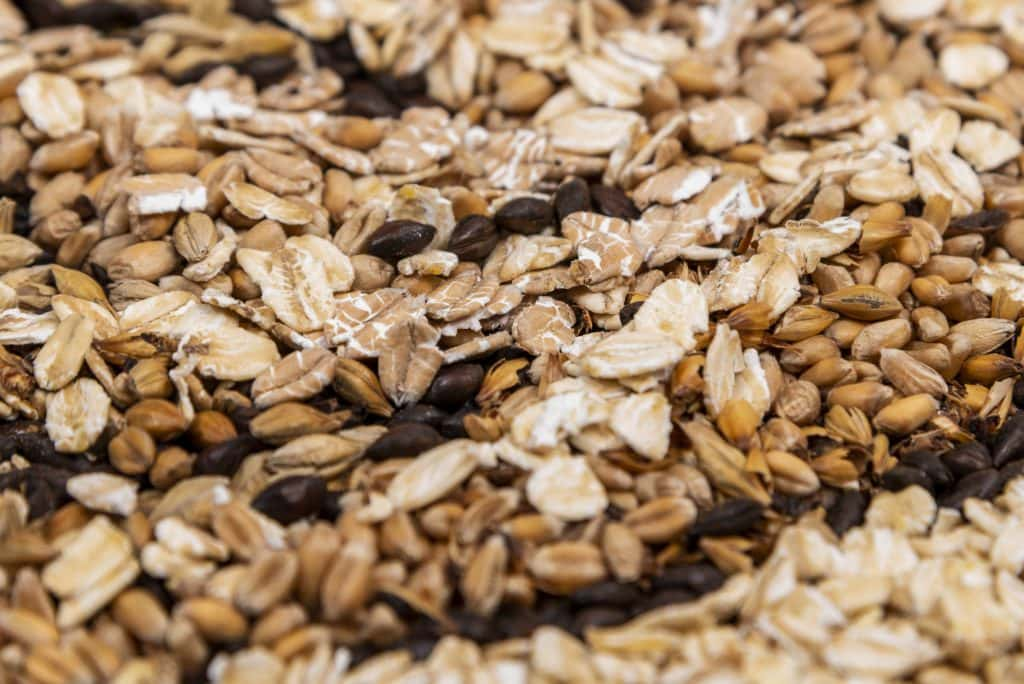
Why do we need fibre in our diet?
Whole grains are simply cereal grains such as wheat, oats or barley that retain all the edible parts – the bran, endosperm and germ – when processed to make food. Refined grains such as white flour, white rice and white bread have had some of these edible parts removed and with them some of the nutrients are lost, such as some of the fibre content.
Examples of foods that may be made from whole grains are: bread, breakfast cereals, pasta, oatmeal and couscous. If a product’s packaging, ingredient list or name mentions ‘whole’ before a grain (e.g. ‘whole wheat’ or ‘whole barley’), then it should contain whole grains. But there are some exceptions to this rule, for example, oats and brown or wild rice are whole grains but don’t necessarily mention the word ‘whole’.
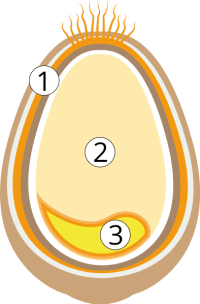
Click the numbers BELOW to learn more:
The outer layer that protects what’s inside. Contains fibre, iron, zinc, magnesium and B vitamins.
The starchy middle contains energy, protein and small amounts of vitamins and minerals.
The nutrient-packed inner; would sprout into a new plant if fertilised. Contains vitamins E and B.
Simple ways to increase your fibre intake
Check the ingredients list
Many foods show how much fibre they contain on the nutrition label on pack and ingredients are listed in weight order so those that have whole grains at the top should be good sources.
If it contains at least 3g of fibre per 100g then it is a source of fibre and if it contains more than 6g of fibre per 100g it is a rich source.
-
Breakfast: Choose higher-fibre breakfast cereals such as plain wholewheat or shredded whole grain cereal, no-added sugar muesli or porridge. Add some dried fruit and nuts or seeds for extra fibre.
-
Lunch: When having a sandwich go for wholemeal or granary breads, pittas, wraps and bagels, or alternatively choose 50/50 options. If you want something hot try jacket potatoes in their skins, wholewheat pasta or brown rice. Add beans and pulses, and veggies to get even more fibre.
-
Dinner: Add whole grain barley or quinoa and pulses like beans, lentils, or chickpeas to soups, stews, curries and salads. Eat potatoes with their skins on such as boiled new potatoes or jacket potatoes, and always remember to include plenty of vegetables with meals.
-
Snacks: Try fresh fruit, vegetable sticks, rye crackers, oatcakes and unsalted nuts or seeds.
Remember
Small changes can make a difference to your fibre intake. Even choosing foods containing small amounts of whole grains can make a contribution to your total fibre intake. Also, try and choose options that have less saturated fat, sugars and salt.
Expert opinion
Whole grains play an important part in a healthy, balanced diet providing a good source of dietary fibre and other nutrients we need for good health. UK government guidelines advise adults should have 30g of dietary fibre a day as this is associated with a lower risk of heart disease, stroke, type 2 diabetes and bowel cancer. Currently adults in the UK only eat around 20g fibre a day, so most of us need to increase our intakes. Choosing foods with fibre may also make us feel fuller for longer, and having a high fibre diet can help digestion and prevent constipation. As part of a healthy, balanced diet it’s important to get fibre from a variety of sources such as whole grains, fruit and vegetables, potatoes in skins, pulses and beans, nuts and seeds.

Gill Jenkins
GP
The British Nutrition Foundation has reviewed the accuracy of the scientific content of this page (please note this does not include linked pages) on March 29, 2021.
The British Nutrition Foundation is not a lobbying organisation nor does it endorse any products or engage in food advertising campaigns.
For more information about the British Nutrition Foundation, please visit www.nutrition.org.uk
Related articles
A Balancing Act with Jimmy Doherty
Milk Every Golden Moment
The Headliner with Danny Jones
Dairy through the lifestages
Wake up to B12
Lancet study about red meat and health challenged by scientists
Should we cut out dairy products from our diet?
Why are whole grains good for your health?
Can eating potatoes increase risk of type 2 diabetes?
The British Nutrition Foundation has reviewed the accuracy of the scientific content of this page (please note this does not include linked pages) on June 2, 2021.
The British Nutrition Foundation is not a lobbying organisation nor does it endorse any products or engage in food advertising campaigns.
For more information about the British Nutrition Foundation, please visit www.nutrition.org.uk






